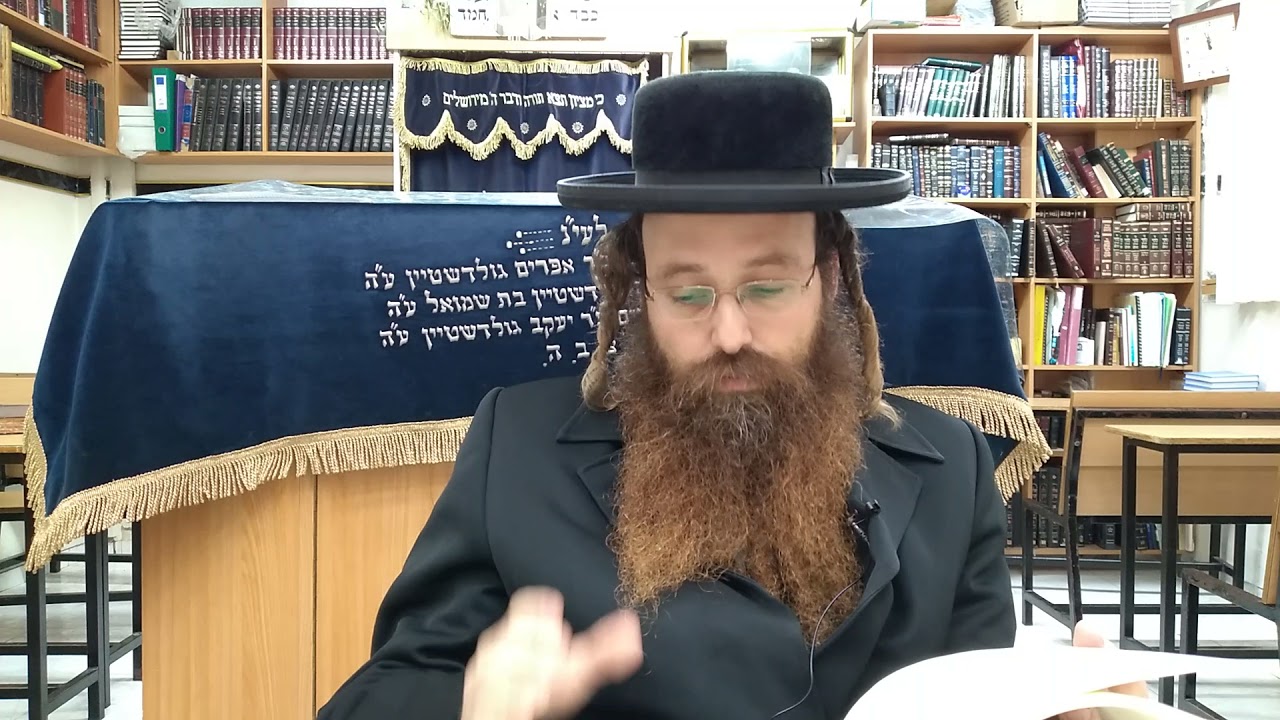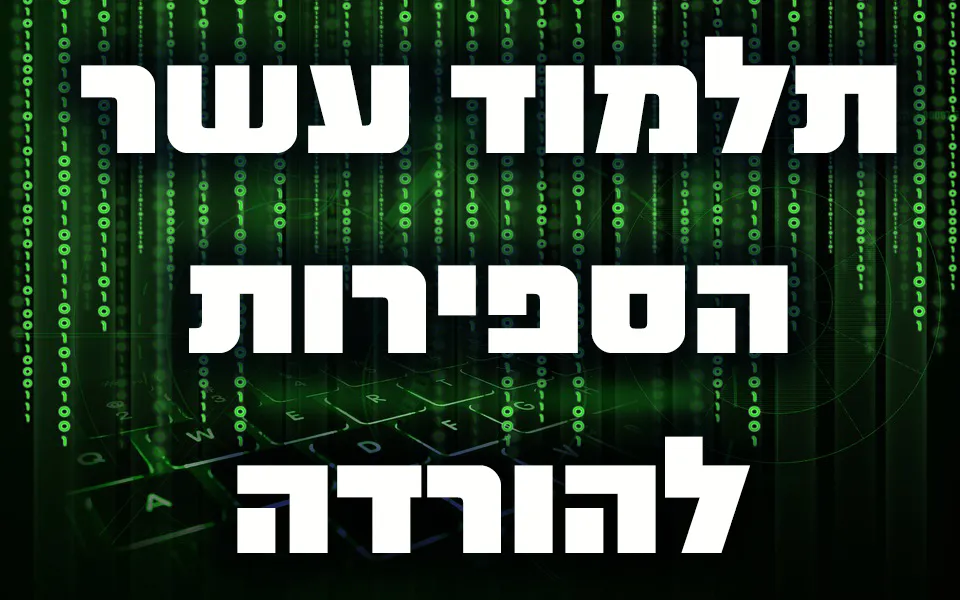ראשית בכורי אדמתך תביא בית יהוה אלהיך לא תבשל גדי בחלב אמו
סיכום שיעור קבלה
שאלו למה לא מערבבים בשר וחלב, וזה קשור אולי לפרשת משפטים, אבל נסביר את זה עכשיו. קודם נבהיר נקודה כללית: ה' הוא לא נברא, אלא הכוח שלו הוא היחיד ששולט בעולם. כל מה שנראה כאילו יש כוחות אחרים – טוב או רע – זה אשליה. אם נתחבר לזה, נגיע למצב של שלמות. עצלות היא השגחה פרטית, אבל בעולם העשייה, בתחתית, רואים "אין עוד מלבדו". זה בכוונה ככה, כדי שיהיה לנו מקום להשתתף בתיקון מהצד שלנו.
עכשיו לעניין בשר וחלב. יש כמה הסברים, אבל נתחיל מהבסיס. אם אכלת חלב, מותר לאכול בשר אחר כך, כי הסדר הוא קודם חסדים ואז חוכמה – קודם כלים זכים, ואחר כך כלים גסים. חלב מייצג כלים זכים, עדינים, ובשר מייצג כלים גסים, עבים. כשאוכלים חלב קודם, מושכים אור זך אבל עדין, שמתאים לכלי הזה, וזה כמו קטנות – מדרגה ראשונית. אחר כך, כשאוכלים בשר, הכלים הגסים מאפשרים למשוך אור גבוה יותר, כי יש כבר בסיס חזק יותר. זה סדר טבעי של גדלות, שבו הכלים מתפתחים בהדרגה.
אבל אם אכלת בשר קודם, ואז תאכל חלב, זה בעייתי. אחרי בשר, הכלים כבר גסים, ואם תמשוך חלב – שמייצג אור זך וגבוה מאוד – תקבל אור חזק מדי לכלי הגס שכבר יש לך. זה כמו שבירת כלים: האור הגבוה נמשך לכלי שלא מתאים לו, והכל מתפרק. לעומת זאת, כשמתחילים מחלב, האור מתאים לכלי הזך, ואחר כך הבשר מוסיף כוח משיכה גדול יותר, אבל בצורה מסודרת. זה חוק של כלים ואורות בקבלה – הכלי קובע את האור שתקבל. כלי זך מושך אור עדין, וכלי גס מושך אור חזק יותר, אבל צריך להתחיל מהזך כדי שהכל יעבוד נכון.
לכן יש סדר: חלב ואחר כך בשר זה בסדר, כי זה הולך מקטנות לגדלות. אבל אם אכלת בשר ואז חלב, האור הזך של החלב נמשך לפי הכלים הגסים של הבשר, וזה לא עובד – זה כאילו מושכים אור גבוה מדי לכלי לא מתאים. בגלל זה מפרידים, ובהלכה קובעים שש שעות המתנה אחרי בשר, כי זה זמן ההתעכלות, זמן החלוקה בין גאות לשפל. יש מנהגים שונים, ויש מקילים לחמש שעות אם זה נוגע לביטול תורה, אבל העיקר הוא הרעיון התודעתי, לא רק הגשמי. אנחנו עובדים דרך הגשמיות, אבל זה לא רק על חלב ובשר פיזיים.
חלב מסמל מוחין אלוקיים גבוהים, כמו שכתוב שהתורה נקראת חלב – זה אור זך מאוד. בשר מסמל כלים גסים יותר, שקשורים לחוכמה אחרי החסדים. הסדר של קטנות לגדלות הוא טבעי ובריא, אבל אם כבר נמצאים בגדלות (בשר) ומושכים חלב, זה מסוכן – האור הגבוה יכול לשבור את הכלים. לעתיד לבוא, אולי נוכל לערבב חלב ובשר, כי יהיה לנו כוח לעמוד בזה, אבל יש בשר וחלב שלעולם לא יתערבבו – הבורא נשאר בורא והנברא נשאר נברא. כחומר, הם לא מתערבבים, כי להגיד שהבורא הוא נברא זה עבודה זרה. אבל כקטנות וגדלות, יש דרך לחבר ביניהם בצורה רוחנית נכונה.
**Summary of Kabbalah Lesson (English Translation)**
They asked why we don’t mix meat and dairy, maybe it’s tied to Parshat Mishpatim, so let’s explain it. First, a general point: God isn’t a created being; His power is the only real force controlling the world. Anything that seems like other forces—good or evil—is an illusion. If we connect to this, we reach a perfect state. Providence is personal, but in the world of action, at its lowest level, we see "there is none besides Him." It’s set up this way on purpose, so we have a role in fixing things from our side.
Now about meat and dairy. There are a few angles, but let’s start basic. If you eat dairy, you can eat meat afterward because the order is chesed (kindness) first, then chochmah (wisdom)—pure vessels first, then coarse ones. Dairy represents pure, refined vessels, and meat represents coarse, thick vessels. When you eat dairy first, you draw a pure but gentle light that fits the vessel, like a state of smallness, an initial stage. Then, if you eat meat, the coarser vessels let you draw a higher light because you’ve built a stronger foundation. This is a natural progression to greatness, where vessels develop step by step.
But if you eat meat first and then dairy, it’s a problem. After meat, your vessels are coarse, and if you draw dairy—which is pure, very high light—you’ll get a light too strong for the coarse vessel you’ve got. It’s like breaking vessels: the high light gets pulled into a vessel that can’t handle it, and it falls apart. If you start with dairy, though, the light matches the pure vessel, and then meat adds more pulling power, but in an orderly way. This is a rule in Kabbalah about vessels and lights—the vessel decides the light you receive. A pure vessel draws gentle light; a coarse one draws stronger light, but you have to start with the pure one for it to work right.
So, the order matters: dairy then meat is fine because it goes from smallness to greatness. But if you’ve eaten meat and then pull dairy, the pure light of dairy comes through the coarse meat vessels, and it doesn’t work—it’s like pulling high, pure light into a coarse vessel, which is forbidden. That’s why we separate them, and halacha sets six hours after meat because that’s digestion time, the shift between high and low tides. Some customs vary, and some allow five hours if it’s about not interrupting Torah study, but the point is the concept, not just the physical. We work through the physical, but it’s not only about literal dairy and meat.
Dairy symbolizes high divine intellect, like the Torah called milk—it’s very pure light. Meat is coarser vessels, tied to wisdom after kindness. The order of smallness to greatness is natural and safe, but pulling dairy after meat when you’re already in greatness is risky—the high light can break the vessels. In the future, maybe we’ll mix dairy and meat because we’ll have the strength for it, but some meat and dairy never mix—the Creator stays Creator, the created stays created. As matter, they don’t blend, because saying the Creator is created is idolatry. But as smallness and greatness, there’s a way to connect them spiritually, correctly.
—
אם יש משהו נוסף שתרצה להוסיף או לשנות, אני כאן!








